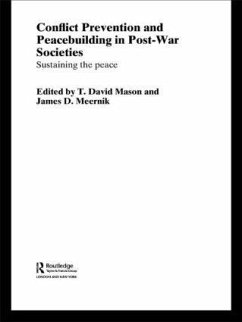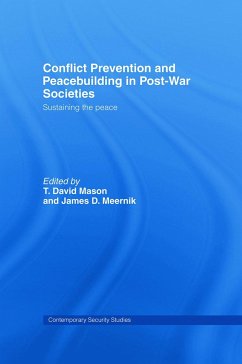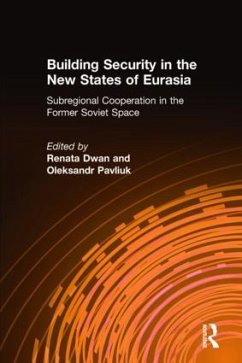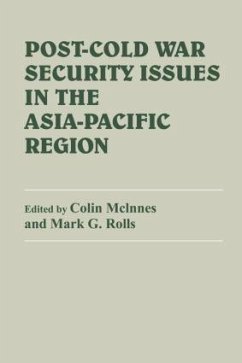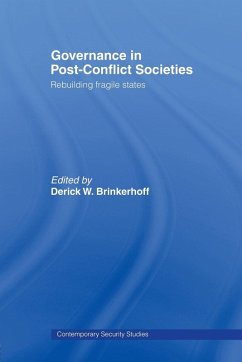
Building Security in Post-Conflict States
The Domestic Consequences of Security Sector Reform
Herausgeber: Schroeder, Ursula; Chappuis, Fairlie

PAYBACK Punkte
98 °P sammeln!
Support for security and justice institutions has become a crucial instrument of international engagement in fragile and conflict-affected states. In attempts to shore up security as a precondition for sustainable peace, international actors have become deeply engaged in reforming the security agencies and security governance institutions of states emerging from conflict. But despite their increasing importance in the field of international peace- and state-building, security sector reform (SSR) interventions remain both highly political and deeply contentious processes. Expanding on this them...
Support for security and justice institutions has become a crucial instrument of international engagement in fragile and conflict-affected states. In attempts to shore up security as a precondition for sustainable peace, international actors have become deeply engaged in reforming the security agencies and security governance institutions of states emerging from conflict. But despite their increasing importance in the field of international peace- and state-building, security sector reform (SSR) interventions remain both highly political and deeply contentious processes. Expanding on this theme, this edited volume identifies new directions in research on the domestic consequences of external support to security sector reform. Both empirically and theoretically, the focus lies on the so far neglected role of domestic actors, interests and political power constellations in recipient states. Based on a wide range of empirical cases, the volume discusses how the often conflictual and asymmetric encounters between external and domestic actors with divergent interests and perceptions affect the consequences of international interventions. By taking into account the plurality of state and non-state security actors and institutions beyond classical models of Weberian statehood, the contributions make the case for engaging more closely with the complexity of the domestic security governance configurations that can result from external engagement in the field of security sector reform. This book was published as a special issue of International Peacekeeping.






